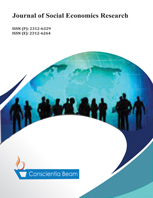Tax substitution: The impact of home-purchase restrictions on corporate tax burden
DOI:
https://doi.org/10.18488/35.v11i2.3669Abstract
The purpose of this study is to determine the relationship between local fiscal pressure and the actual tax burden of enterprises. Using China’s home-purchase restriction policy as a quasi-experiment, this study assesses the impact of the policy on firms’ tax burdens in affected areas and researches the relationship between local fiscal pressure and the actual tax burden of enterprises. Drawing from 2006-2014 financial data of Chinese listed companies and using a difference-in-differences approach, the findings show: (1) the policy significantly improved the actual tax burden of enterprises and increased the actual tax burden by around 0.7%; (2) this effect is stronger in areas with stricter restrictions, smaller cities, and the property sector, including related industries; (3) as a response to reduced fiscal revenue from the policy, local governments have adopted tax increase measures such as strengthening collection and management and settling the arrears of taxes, which have promoted the actual tax burden of enterprises. From the perspective of financial pressure, this paper reveals the path for local governments to release financial pressure, which has reference value for interpreting local government behaviors under the Chinese "pressure" financial system and provides a theoretical basis for improving local government governance, reducing government discretion space, and optimizing the business environment.

